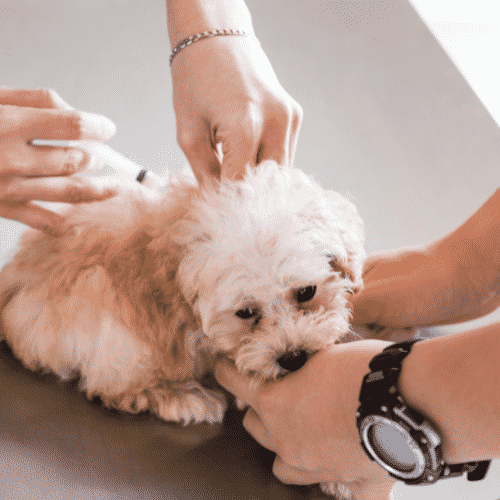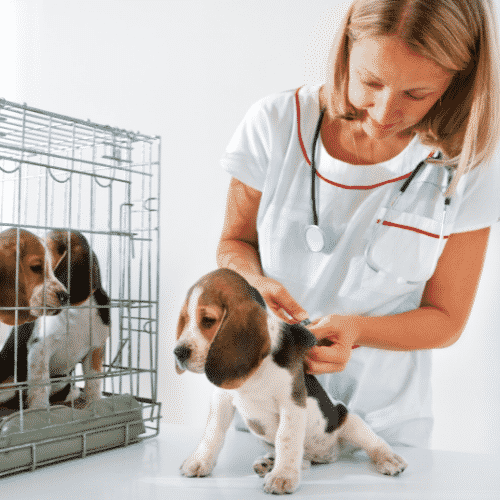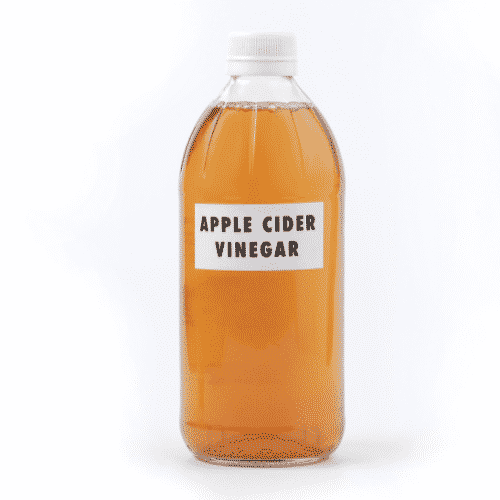The diagnosis of parvo is the last thing a new canine parent wants. Unfortunately, parvo in pups is a widespread disease with negative body effects. Because of this, it is essential for everyone who works with puppies daily to be familiar with the signs of this disease and the treatments available for the condition. Vaccination is the best treatment/prevention for parvo, but sometimes there are few side effects of parvo shots in puppies. Let us discuss all these side effects.

After receiving a parvo shot, it is common for puppies to encounter some or all of the mild side effects, such as discomfort, swelling, mild fever, appetite loss, sneezing, and mild coughing. These symptoms typically begin within hours of receiving the vaccination and can last for a few days. It’s essential to consult your veterinarian if these side effects last longer than a day or two or if they give your puppy significant discomfort.
What Is Parvo?
The canine parvovirus causes parvoviral enteritis in puppies. This parvovirus is extremely infectious and may be passed on either directly through touch with a sick pup or indirectly through contact with an object that has been infected. Every time your puppy sniffs, licks, or ingest contaminated excrement, he is susceptible to parvoviral enteritis.
The virus preferentially infects the digestive tract, where it damages cells, inhibits absorption, and alters the intestinal lining.
How Do Dogs Get Parvo?
Parvovirus is a highly infectious virus that spreads rapidly and effectively. So, how does it spread?
Although canine parvovirus does not spread through the air, it is present on various surfaces across the environment.
It is infectious by direct contact with feces that have been infected; however, the virus can be present even in the absence of solid feces. It may survive on the ground, kennel surfaces, people’s hands, and infected clothes. If puppies have come into touch with infected feces, it might be carried on their fur or paws.
Parvovirus may survive for months, if not years, outside and is resistant to most disinfectants. However, it can be killed by diluted bleach and other specialty cleaners used in veterinary facilities.
Symptoms of Parvoviral Enteritis in Puppies
Puppies that are infected with parvo are in critical condition. If you can recognize the symptoms of the parvovirus in pups as soon as they appear, you will have more time to take your puppy to the veterinarian. Because parvo is so common in juvenile pups, you should take your puppy to the veterinarian as soon as you see any sign of infection. Still, you must be aware of these symptoms:
- Dysentery
- Severe vomiting
- High fever
- Exhaustion
- Faintness
- Depression
- Thirst
Vaccinating Puppies Against Parvovirus
Parvo is a preventable virus. All pups and adult dogs should be vaccinated against parvo, but breeding females must have an entire course of parvo vaccines, as the puppies depend on their mother’s antibodies during the first few weeks of life.

What Kinds of Side Effects Can Puppies Have From Their Shots?
Vaccine effects are often moderate, short-lived, and far less hazardous than the diseases against which they provide protection. Below are some of the most significant side effects that might occur as a result of vaccines for puppies below:
Lethargy & Slight Fever
The most frequent adverse reactions that follow vaccination in pups include lethargy, minor pain, and a slight temperature. These can be recognized by the fact that your pup is behaving in a manner that is not typical of them. The symptoms are often moderate and only persist for one to two days after immunization because this is a normal side reaction to vaccines. After a few days, if your puppy isn’t performing properly, you should seek guidance from your veterinarian.
Localized swelling
A common side effect of vaccines in puppies is the emergence of lumps and bumps. Frequently, a tiny, hard bump may form at the needle’s site. This is a typical response; nevertheless, owners of pets should keep a close check on the affected region to ensure that the lump does not continue to get larger or exhibit indications of inflammation, infection, or leaking. The lump shouldn’t be painful, and its removal should take place for around a week. Call your veterinarian if the lump shows indications of becoming sick or if it hasn’t disappeared after a week of observation.
Sneezing & Cold Like Symptoms
The majority of the vaccinations advised for puppies are given as injections; however, some vaccines are delivered as drops or sprays injected into the pet’s nose or eyes. Intranasal immunizations can cause very similar reactions to the common cold symptoms. These symptoms include a runny nose, coughing, and sneezing. You should assume that your pup will be back to normal within one or two days. See your veterinarian if your puppy does not show signs of improvement within a few days or has more severe symptoms.
What Serious Side Effects Could My Puppy Get From Vaccines?
The majority of the side effects connected with vaccinations for puppies are mild and only last a short amount of time; but, in a few extremely rare situations, more serious effects that require rapid medical treatment can occur.
Generally, symptoms of a severe response will manifest shortly after vaccination, although they may take up to 48 hours. Signs of more serious adverse reactions to immunizations for pups include face swelling, vomiting, hives, itching, diarrhea, and difficulty breathing.
The most severe allergic response that can occur in puppies due to immunizations is called anaphylaxis. It is essential to remember that anaphylaxis can manifest up to 48 hours after a vaccination has been administered; however, the condition will often manifest itself in pups reasonably shortly after the vaccination has been administered.
How to Cure Parvo Without a Vet
How Can I Prevent My Puppy From Reacting to Their Shots?
Vaccinations are necessary to ensure your puppy’s general health. A vaccination poses a minimal chance that your puppy will have significant adverse effects.
Please inform your veterinarian if your puppy has ever encountered adverse reactions to shots. Your veterinarian may recommend avoiding a specific immunization in the future.

Veterinarian (DVM, MS) Content Writer, Blogger, and WordPress Developer. Working as a pet/animal/bird/fish/reptile/wildlife writer for the past 7 years on many renowned platforms.




